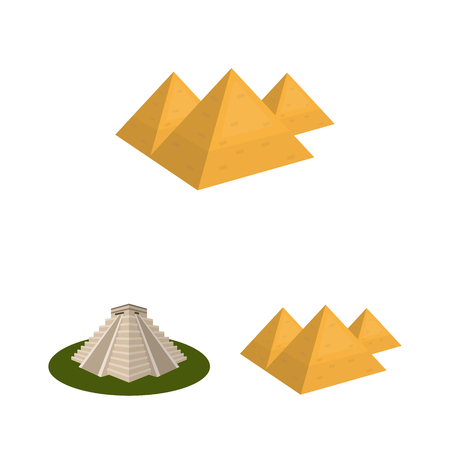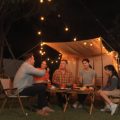1. Understanding the Basics
If youre new to camping, choosing between a backpacking tent and a car camping tent can feel a bit overwhelming. Both types of tents serve different purposes, and the right one for you depends on how and where you plan to camp. Lets break down the key differences so you can make an informed decision.
What’s the Main Difference?
The biggest difference between backpacking tents and car camping tents comes down to portability and purpose. Backpacking tents are made to be lightweight and compact because youll be carrying them on your back—sometimes for miles at a time. On the other hand, car camping tents are designed with comfort in mind since youre driving right up to your campsite and don’t have to worry about weight or size as much.
Key Features Compared
| Feature | Backpacking Tents | Car Camping Tents |
|---|---|---|
| Weight | Ultralight (usually 2–5 lbs) | Heavier (can range from 10–20+ lbs) |
| Packed Size | Compact, fits in a backpack | Larger, needs trunk space |
| Setup | Simple but snug design | More spacious, may take longer to set up |
| Space Inside | Tight fit, limited headroom | Roomy, often tall enough to stand in |
| Durability & Weather Protection | Built for efficiency; less durable in rough conditions | Usually more robust and weather-resistant |
| Best For | Hiking, trekking, minimal gear trips | Family trips, festivals, drive-in campgrounds |
Intended Use Matters Most
If youre planning on hiking deep into the backcountry, every ounce matters—so a lightweight backpacking tent is your go-to. But if youre heading out for a weekend getaway with friends or family and want comfort and space, a car camping tent will serve you much better. Think about how far youre traveling on foot versus how much convenience you want when you arrive.
Quick Tip:
A good rule of thumb: if you have to carry it more than a mile, go backpacking-style. If youre parking next to your site, go for comfort with a car camping tent.
Your Camping Style = Your Tent Choice
The bottom line is that your ideal tent depends on your adventure style. Whether youre chasing mountaintop views or cozy evenings by the lake with the family, theres a perfect tent type waiting for you.
2. Portability and Weight Considerations
When choosing between a backpacking tent and a car camping tent, one of the biggest differences is how easy it is to carry. Backpackers and minimalist adventurers need gear that’s light and compact enough to fit in their pack, while car campers can afford to bring along bulkier tents that offer more space and features.
Backpacking Tents: Built for the Trail
If youre planning to hike miles into the backcountry, every ounce counts. Backpacking tents are designed with lightweight materials like aluminum poles and thin but durable fabrics to keep your load as light as possible. Many models weigh just 2 to 4 pounds and can be packed down small enough to fit inside or outside a hiking backpack. These tents typically sleep 1 to 2 people and often sacrifice headroom and extra features to stay ultralight.
Why Backpackers Love Them:
- Ultralight design makes long hikes easier
- Compact size fits easily in a backpack
- Quick and simple setup after a long day on the trail
Car Camping Tents: Comfort Comes First
Since you’re driving right up to your campsite, weight isn’t really an issue for car camping tents. This gives manufacturers the freedom to use heavier materials that add durability, weather protection, and interior space. You’ll find car camping tents with tall ceilings (great for standing up inside), multiple rooms, big vestibules, and even built-in storage options. They’re perfect for families or anyone who wants extra room to stretch out.
Why Car Campers Prefer Them:
- Roomy interiors with space to stand or move around
- More durable construction for extended stays
- Extra features like windows, dividers, and large doors
Side-by-Side Comparison
| Feature | Backpacking Tent | Car Camping Tent |
|---|---|---|
| Weight | 2–4 lbs (lightweight) | 10+ lbs (heavier) |
| Packed Size | Compact, fits in a backpack | Larger, needs trunk space |
| Setup Time | Quick (for solo hikers) | Longer (often larger setups) |
| Interior Space | Tight but efficient for sleeping only | Spacious with room to stand or store gear |
| Best For | Hikers, solo travelers, minimalists | Families, group trips, comfort seekers |
Your choice really depends on how you plan to camp. If you’re trekking through trails with everything on your back, go light with a backpacking tent. But if you’re driving in and setting up basecamp for the weekend, the added comfort of a car camping tent might be worth its weight—literally.

3. Set-Up and Packability
When choosing between a backpacking tent and a car camping tent, how easy it is to set up and pack away can make a big difference—especially after a long day on the trail or when daylight is fading fast.
Ease of Set-Up
Backpacking tents are designed for speed and simplicity. Since hikers often arrive at camp tired and with limited light, these tents usually feature color-coded poles, clip-on designs, and minimal parts. Most can be set up by one person in just a few minutes.
Car camping tents, on the other hand, tend to be larger and more spacious—which means they also take longer to pitch. While many modern models include intuitive features like pre-attached poles or instant canopies, you’ll likely need two people and a bit more patience to get them standing properly.
Packability
Here’s where backpacking tents really shine. Built with lightweight materials and compact components, they’re made to fit inside your backpack without taking up much space. Car camping tents aren’t built with portability in mind—they often come in bulky bags with large poles that are better suited for trunk space than a hiking pack.
Tent Comparison: Setup & Packability
| Feature | Backpacking Tent | Car Camping Tent |
|---|---|---|
| Average Setup Time | 5–10 minutes (solo setup) | 10–20 minutes (may need 2 people) |
| Setup Complexity | Simple, minimal poles and clips | Moderate to complex, may include multiple rooms or features |
| Packed Size | Compact; fits inside a backpack | Larger; requires trunk or roof storage |
| Total Weight | 2–5 lbs on average | 10–20+ lbs depending on size |
What It Means for You
If youre hiking deep into the backcountry, youll want something that sets up fast and packs down small—backpacking tents are made for this. But if youre driving straight to your campsite and comfort is king, the extra time it takes to pitch a car camping tent might be worth it for the added space and features.
4. Comfort and Space
When choosing between a backpacking tent and a car camping tent, comfort and space are two major factors that can make or break your outdoor experience. Whether youre out for a weekend hike or setting up camp with the whole family, how much room you have inside your tent matters more than you might think.
Interior Room
Backpacking tents are designed to be lightweight and compact, which usually means sacrificing interior space. They’re often just big enough for sleeping and a bit of gear. On the other hand, car camping tents prioritize comfort, offering roomy interiors where you can stretch out, stand up, or even set up cots or air mattresses.
Headspace
Headroom is another key difference. Backpacking tents typically have a low profile to reduce weight and wind resistance. This means you might not be able to sit upright comfortably—especially if youre tall. Car camping tents tend to have higher ceilings, sometimes even tall enough to stand in, making changing clothes or moving around much easier.
Amenities
Car camping tents usually come loaded with extra features that make your stay more enjoyable:
- Multiple doors: Great for groups, allowing easy entry/exit without crawling over others.
- Vestibules: Covered spaces outside the main tent area perfect for keeping muddy boots or storing gear.
- Gear storage: Interior pockets, gear lofts, and loops help keep your space organized.
Comparison Table: Backpacking vs Car Camping Tents (Comfort & Space)
| Feature | Backpacking Tent | Car Camping Tent |
|---|---|---|
| Interior Space | Tight fit; minimal room | Spacious; ideal for relaxing or group use |
| Headroom | Low profile; limited sitting space | Taller ceiling; some allow standing upright |
| Number of Doors | Usually one door to save weight | Often two or more doors for convenience |
| Vestibules/Gear Storage | Small vestibule; limited storage options | Larger vestibules; multiple interior pockets and gear lofts |
If youre planning longer stays at established campgrounds or traveling with family or friends, the added comfort and space of a car camping tent will be a huge plus. But if youre hiking miles into the backcountry, every ounce counts—so a smaller backpacking tent may still be the better choice.
5. Durability and Weather Resistance
When youre choosing between backpacking tents and car camping tents, its important to think about how each type holds up against the elements. Whether youre dealing with high winds in the mountains, heavy rain in the forest, or intense sun in the desert, the materials and build quality of your tent can make a huge difference in comfort and safety.
Materials Used
Backpacking tents are usually made with lightweight materials like ripstop nylon or polyester. These fabrics are designed to keep weight down without sacrificing too much strength. Car camping tents, on the other hand, often use heavier-duty fabrics since weight isnt as much of a concern. This means they can be more robust and long-lasting under rough conditions.
| Feature | Backpacking Tents | Car Camping Tents |
|---|---|---|
| Main Fabric | Lightweight nylon or polyester (20D-40D) | Heavier polyester or canvas (60D+) |
| Pole Material | Aluminum or carbon fiber for weight savings | Steel or fiberglass for strength |
| Zippers & Seams | Taped seams, small zippers to reduce weight | Reinforced seams, large zippers for durability |
Performance in Different Weather Conditions
Wind
Backpacking tents are built low to the ground with aerodynamic shapes to handle strong winds well, especially at higher elevations. Their flexible poles help absorb gusts instead of snapping. Car camping tents are taller and roomier, making them more vulnerable to wind, though some models come with extra guy lines and reinforced frames for stability.
Rain
A good rainfly and sealed seams are key in any tent. Backpacking tents usually have tight rainflies and bathtub-style floors that keep water out efficiently. Car camping tents may have larger rainflies but can be harder to set up properly if youre not careful about overlapping flaps and ground drainage.
Snow
If youre heading into snow, 4-season backpacking tents are available with stronger pole structures and steeper walls to shed snow buildup. Most car camping tents arent designed for snow loads unless theyre winter-specific models.
Heat & Sun Exposure
Tents that breathe well are essential in hot weather. Backpacking tents focus on ventilation while still keeping bugs out using mesh panels. Car camping tents often offer more windows and even screened rooms for airflow, plus thicker fabrics that provide better UV resistance over time.
The Bottom Line on Durability vs Portability
If you need something tough enough for harsh climates but easy to carry on your back, go with a high-quality backpacking tent made from technical materials. If your adventures take you into milder conditions and you value space and convenience, car camping tents offer solid protection with less worry about weight.
6. Choosing What’s Right for Your Adventure
Picking the right tent really depends on what kind of trip you’re planning. Whether youre heading deep into the backcountry or setting up next to your car at a campground, your gear needs to match your adventure. Heres how to figure out what tent suits you best based on a few key factors:
Trip Duration
If youre going out for just one night, comfort might not be your top priority—something light and quick to set up could do the trick. But if youre camping for multiple days, youll want more space and durability.
| Trip Length | Best Tent Type |
|---|---|
| 1–2 Nights | Backpacking Tent (lightweight, quick setup) |
| 3+ Nights | Car Camping Tent (more room and comfort) |
Terrain and Weather Conditions
The type of terrain and expected weather can make a big difference in what kind of tent youll need.
| Conditions | Tent Features to Look For |
|---|---|
| Mountain or Rocky Terrain | Lightweight, compact backpacking tent with strong poles |
| Mild Weather, Grassy Campsites | Larger car camping tent with mesh windows for ventilation |
| Rainy or Windy Areas | Tent with full rainfly and sturdy guy lines (both types available) |
Group Size
The number of people coming along plays a big role in choosing your tent. Backpacking tents are great for solo hikers or pairs, while car camping tents are better for families or groups.
| # of Campers | Tent Recommendation |
|---|---|
| 1–2 People | Backpacking Tent (easy to carry) |
| 3–4 People | Slightly larger backpacking tent or small car camping tent |
| 5+ People | Bigger car camping tent with multiple rooms or vestibules |
Your Camping Style
This is all about personal preference. Do you like hiking deep into nature with just the essentials? Or do you prefer setting up a cozy base camp with chairs, coolers, and maybe even a grill?
If You Prefer:
- A minimalist adventure: Go with a backpacking tent. Theyre built for mobility and efficiency.
- A comfortable outdoor experience: Choose a car camping tent. They offer more space and convenience.
No matter which way you lean, think about whats most important to you: weight, comfort, space, or convenience. Matching your tent to your adventure will help make sure you enjoy every minute outside.


